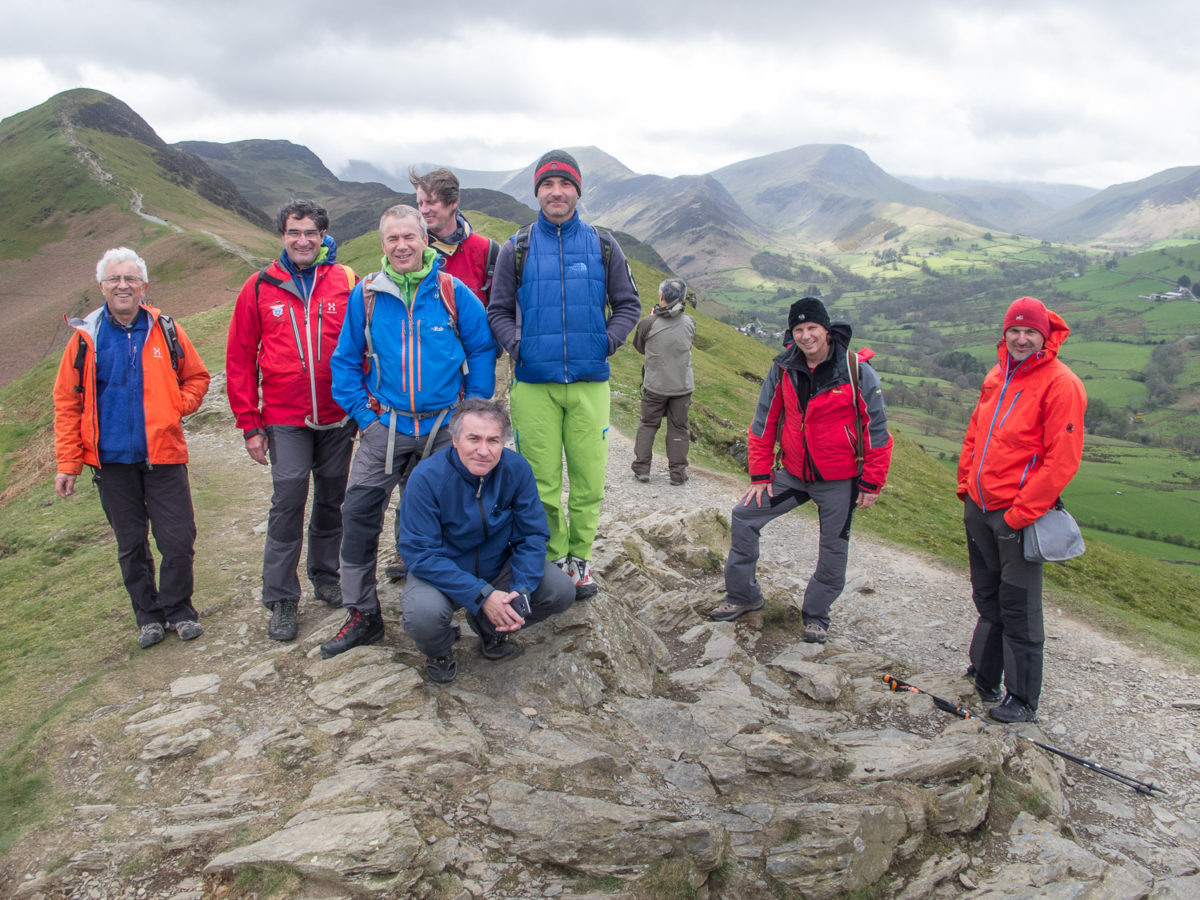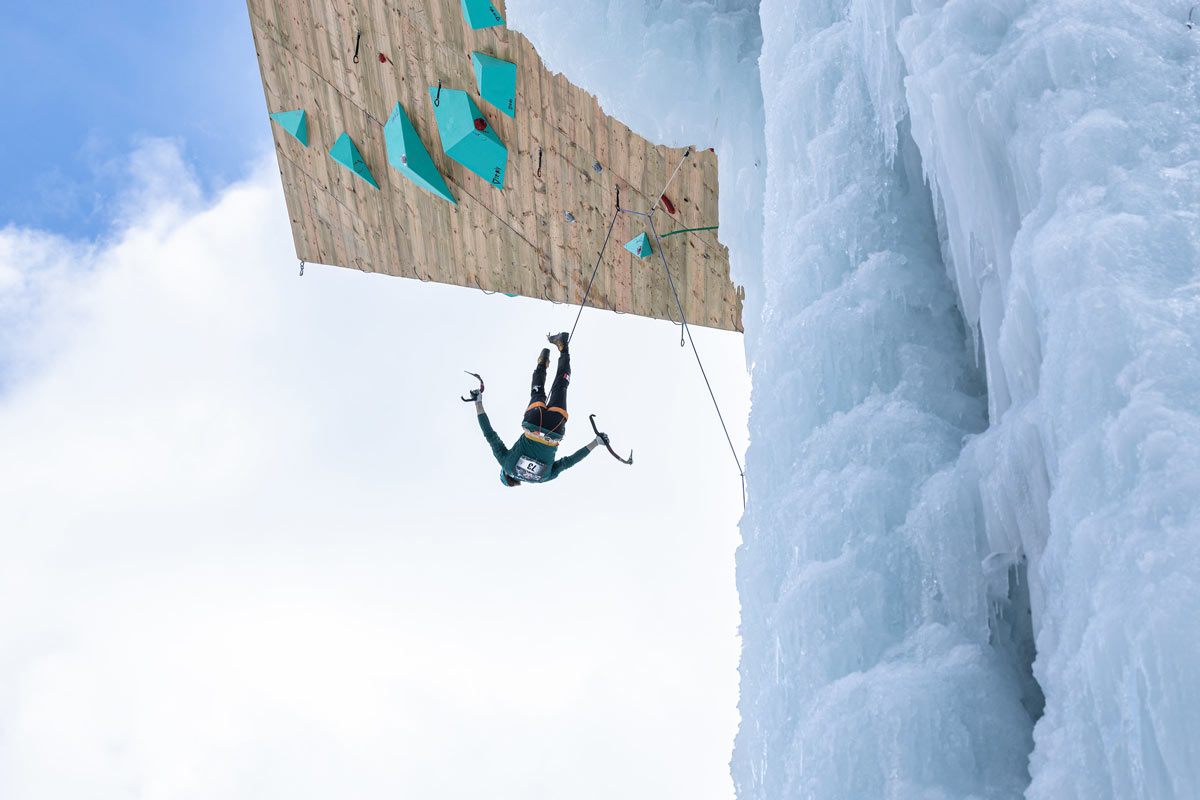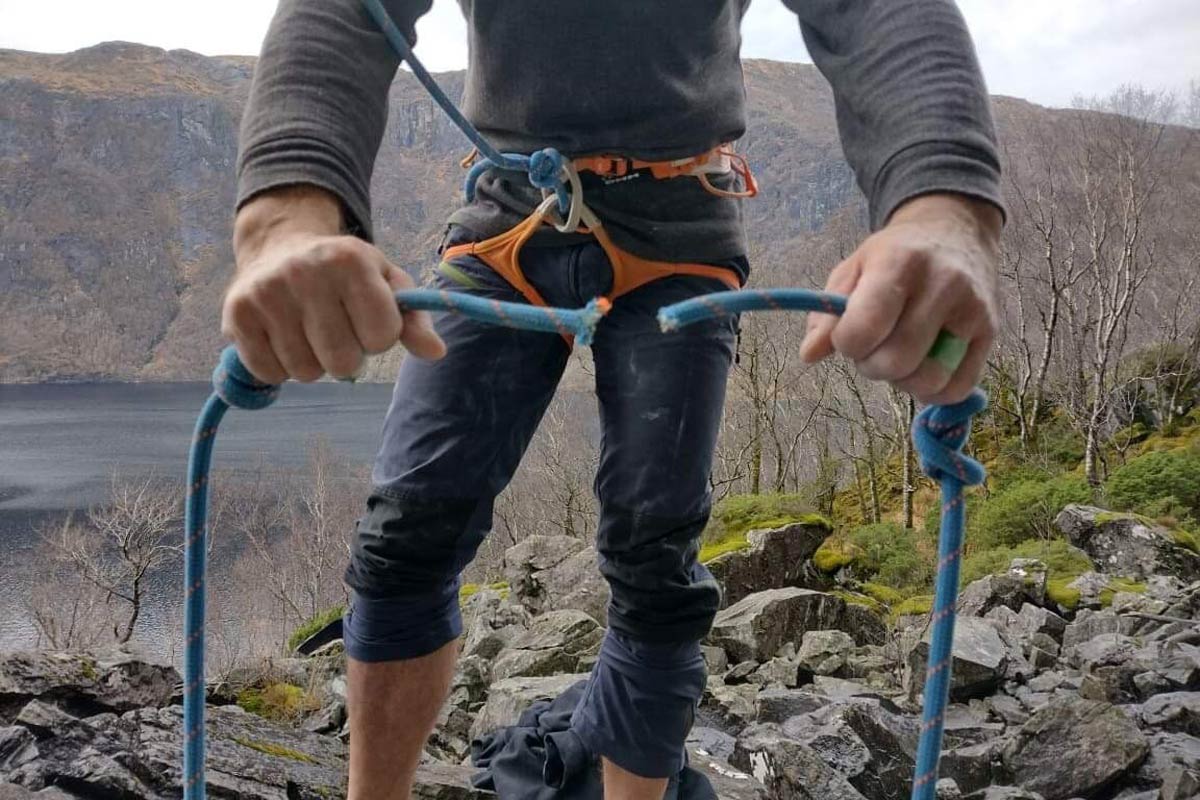The UIAA Mountaineering Commission met in Keswick, UK, in April 2017. The meeting, which was hosted by the British Mountaineering Council (BMC), was attended by 16 delegates from 14 different countries. Nick Colton (Deputy CEO of the BMC) welcomed everyone and gave a fascinating presentation about climbing and mountaineering, highlighting how ethics have changed and developed in British and alpine climbing in the past 50 years.
WELCOME BY THE NEW MOUNTCOM PRESIDENT

Having recently become President of the UIAA Mountaineering Commission, Claudio Melchiorri shared his vision to strengthen the Commission’s role in mountain training for both federations and individuals, and to contribute towards increasing safety in mountaineering in terms of risk management, teaching and personal skills development. Claudio is also very keen to increase awareness amongst climbers and federations of ethical issues and sustainability, both in our climbing activities as well as in how we regard and approach the mountains. The Commission will also continue to provide a forum for sharing knowledge and experience of legal issues in terms of access and the legal responsibilities of participants.
UIAA TRAINING & MOUNTAIN QUALIFICATION LABEL
Awareness of UIAA Training continues to grow, with a large number of Federations now applying for membership of the UIAA, primarily for developing training. A UIAA Training seminar is to be held in October in Cyprus for hill-walking instructors and coaches. Delegates spent an afternoon during the meeting on the hills above Keswick discussing and observing challenges faced when running a hill-walking training programme.

Following official UIAA inspections of their assessment courses, Cyprus and Nepal have recently been accredited respectively for their rock climbing / hill walking qualifications, and Sweden and France have been accredited for their ice climbing instructor qualifications. An additional standard has now been developed for canyoning qualifications in collaboration with the Spanish Federation, FEDME, which has its own canyoning sub-group and experience in teaching canyoning.

UIAA Training is currently developing personal skills training. Following approval at the 2016 UIAA General Assembly, the syllabus and resources for personal skills training courses will now be franchised to accredited member organisations, which they will be able to offer through their qualified instructors and guides.
The UIAA Alpine Skills Handbook, which was developed jointly with the Petzl Foundation, and which is already available in French and English, is currently being translated into several additional languages, including Spanish, Turkish and Korean. Work is under way to produce a Winter Skills Handbook, as well as cross-platform digital versions of each manual. This will allow integration of training videos, will reduce distribution costs, and makes it easier for the commissions to update and add new information.
ETHICS
The UIAA document ‘Preservation of Natural Rock for Adventure Climbing’ recognizes the value and benefits of adventure (trad) climbing and the need to ensure that areas of natural rock are preserved.
This document has been well received by a number of Federations, including Norway, France, South Africa, Turkey and Catalonia, and has been translated into several languages. As a result, MountComm has made a series of recommendations, and will connect with groups set up in France, Switzerland and South Africa who are concerned about the steady loss of adventure climbing areas and are encouraging adventure/trad climbing. MountCom is actively looking at ways and means of enabling developing countries to obtain self-protection/trad equipment direct from climbers and climbing organisations in developed countries, as well as from manufacturers. It also aims to connect with climbing festivals in order to highlight and promote the values of adventure climbing.
Concerns have been raised about the increasing number of incidents in which fixed protection has been placed without the consent of the landowner, local climbers/clubs or the national federation. In many instances the perpetrators are visiting climbers from a different country. MountCom is monitoring such activity, and is looking at how the federations and the UIAA can reach out to climbers to inform them of local traditions, local ethics and the processes they should follow if they do wish to place fixed equipment.
The Commission members were introduced to the work of the Mountain Heritage Trust at the Keswick Museum by the President of the Alpine Club, John Porter, who highlighted the importance of mountain heritage, both from a historical perspective, and from its importance in developing ethics and style in climbing and mountaineering.
SAFETY
Delegates learned about a recent avalanche accident in Japan in which eight people, including seven children, lost their lives. MountCom hopes that the continued development of personal, teaching and coaching skills through UIAA Training will help to reduce the number of similar accidents in future years.

It is well known that electronic devices, particularly mobile phones and smart watches, can interfere with avalanche transceiver transmission, in some cases even rendering them useless. MountCom would like to encourage member Federations to educate their members of this danger and to inform them that generally-accepted best practice is to keep all additional electronic devices turned off and a minimum of 20cm from avalanche transceivers.
With special thanks to the British Mountaineering Council, the staff of Derwent Hill Outdoor Education and Training Centre, the Mountain Heritage Trust, The Keswick Museum and Art Gallery and George Fisher UK for supporting this meeting.
Report by: Phil Wickens (BMC Representative), UIAA Mountaineering Commission



